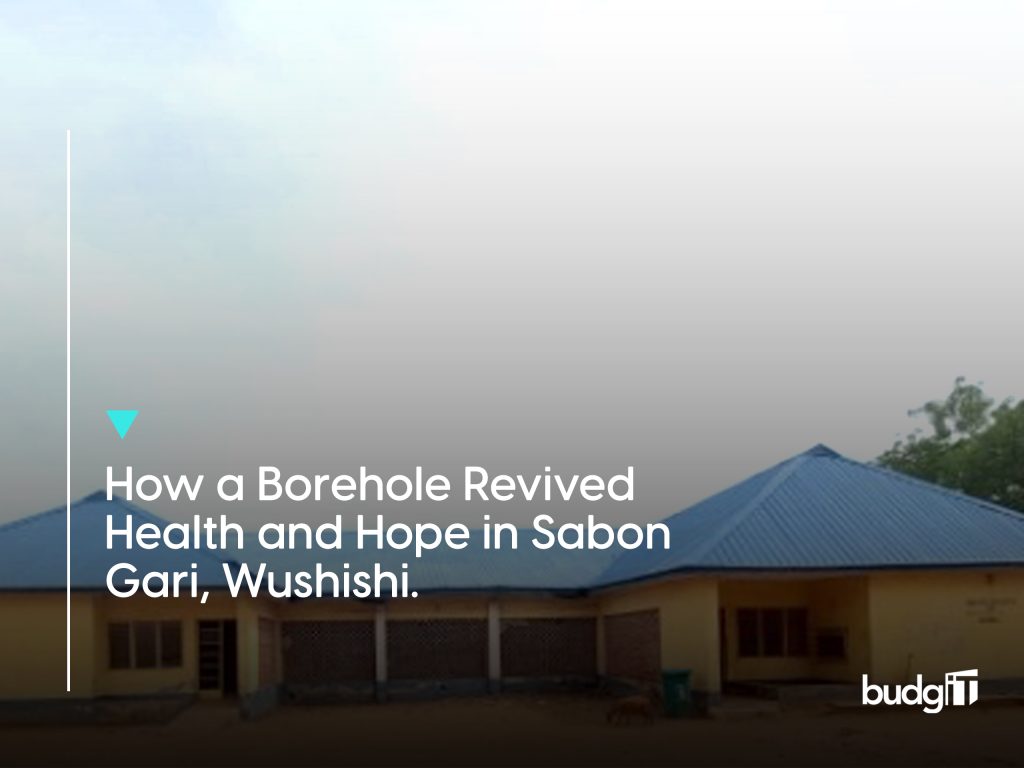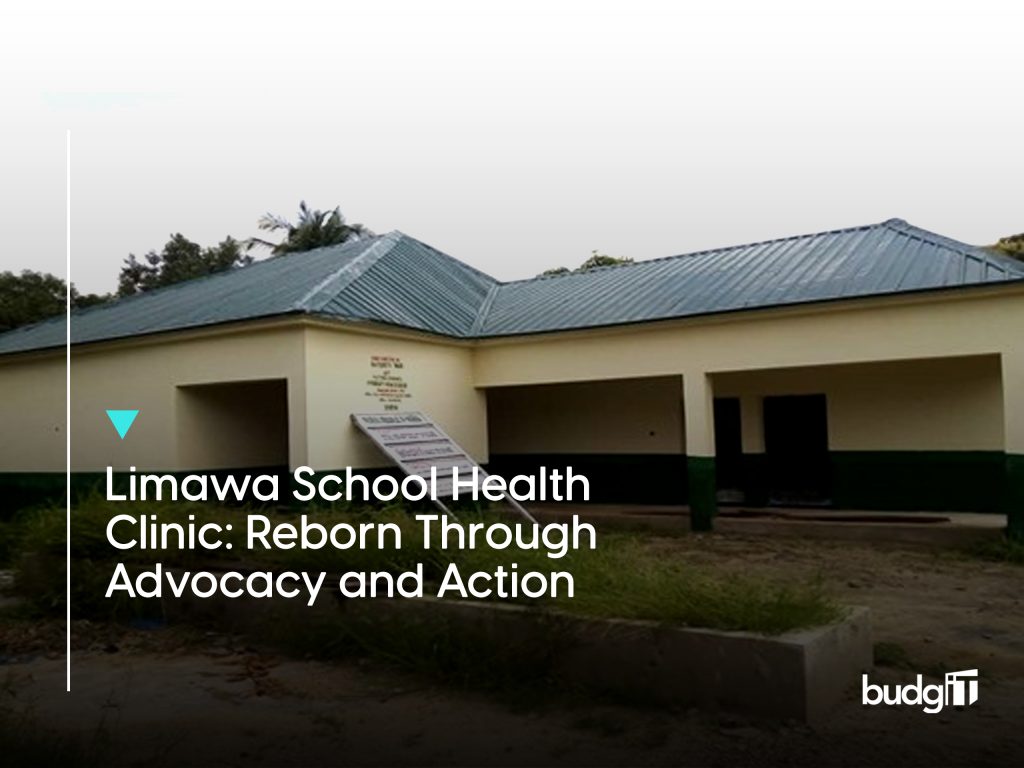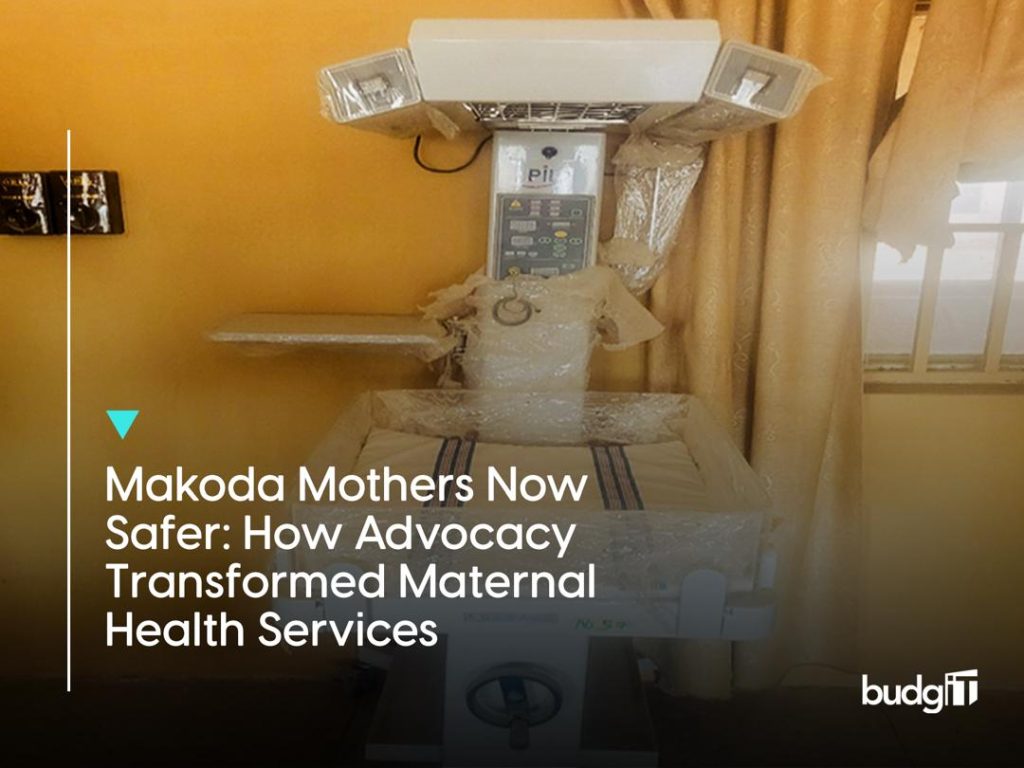It is no secret that corruption thrives in opaque budget systems, which is why BudgIT continues to increase access to budgetary information for citizens to drive development and promote good governance in Africa. In 2022, we expanded our work to Senegal, conducting a feasibility study and reviewing how to navigate language barriers and other societal issues that could prevent our work in the country. In our country offices in Ghana, Liberia, and Sierra Leone, our core programs focused on budget access and demanding accountability from the health sector through the COVID-19 Transparency and Accountability Project, vaccine hesitancy, equity, and extractive transparency.
The Budget Access Program
Providing simplified access to budgetary information is at the core of our existence at BudgIT. When citizens are informed, they are empowered to have a say in how public resources are expended and monitor service delivery in their communities. Our strategy involves developing visually appealing infographics and reports to creatively engage citizens and encourage them to demand transparency in public funds and service delivery. Budget transparency is crucial to good governance and economic development in African countries. It allows for greater public scrutiny and participation in the budget process, leading to more effective and efficient use of public resources. It also helps fight against corruption, making it more difficult for government officials to misallocate or embezzle funds.
BudgIT Ghana developed a citizen-friendly report on the 2022 national budget titled “Building a Sustainable Entrepreneurial Nation: Fiscal Consolidation and Job Creation,” using data visualization to make government budget information more accessible to citizens. Budget accessibility is beneficial at a time when the Ghanaian economy is experiencing one of its worst economic crises, with an increased debt load of $7 billion and the highest inflation rate in 21 years at 50.3%. The simplified reports were printed on paper and distributed at citizen sensitization meetings to enable citizens to hold their governments accountable for using public resources.
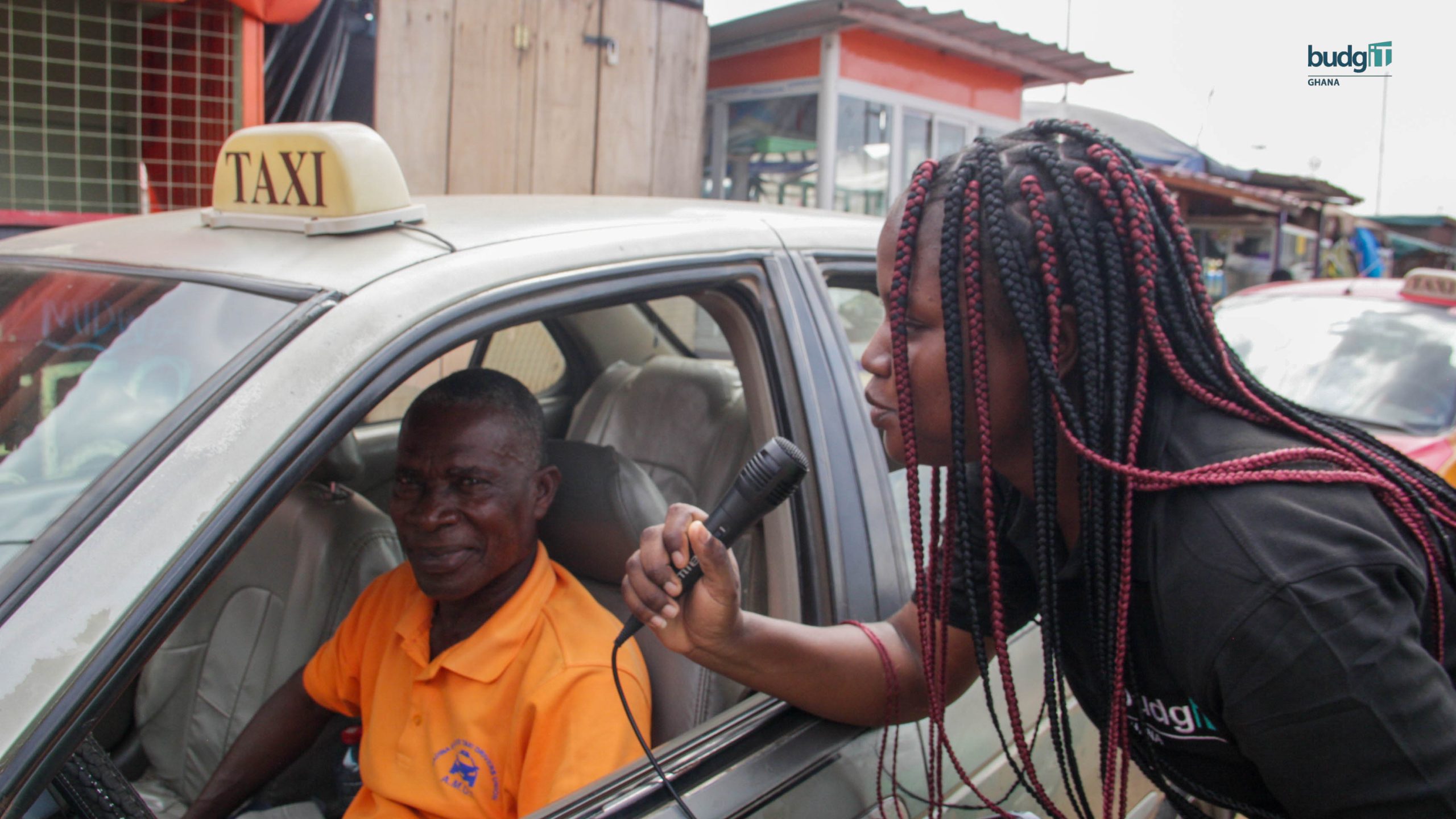
BudgIT Ghana team engages commercial drivers on the national budget
Similarly, the BudgIT Liberia team developed an abridged version of the 2022 national budget, detailing the government’s spending plans and ambitious revenue targets of $64.2 million from domestic sources and an expenditure of $787 million. With a ballooning debt service of $105 million and only a tiny fraction of the budget (17.7%) going towards public sector investments. Budget transparency is critical in Liberia, where many citizens live in poverty and rely on government services for basic needs like healthcare and education; without it, citizens may not know how much money their government is spending on these services or whether or not they are being provided effectively. Condensing the 500-600 page document into a 14-page pamphlet that is easy to read and details all expenditures and revenues for the year, the budget analysis is presented in simple charts and infographics, emphasizing the government’s revenue acquisition strategies and spending priorities.
BudgIT Sierra Leone also developed a brief analysis of the 2022 national budget, themed “Building Resilience for Inclusive Green Recovery.” The budget promises to address the country’s numerous challenges, including a weakened economy, increasing food shortages, natural disasters, and climate change risks; however, without adequate monitoring by citizens, there might be no actual implementation.
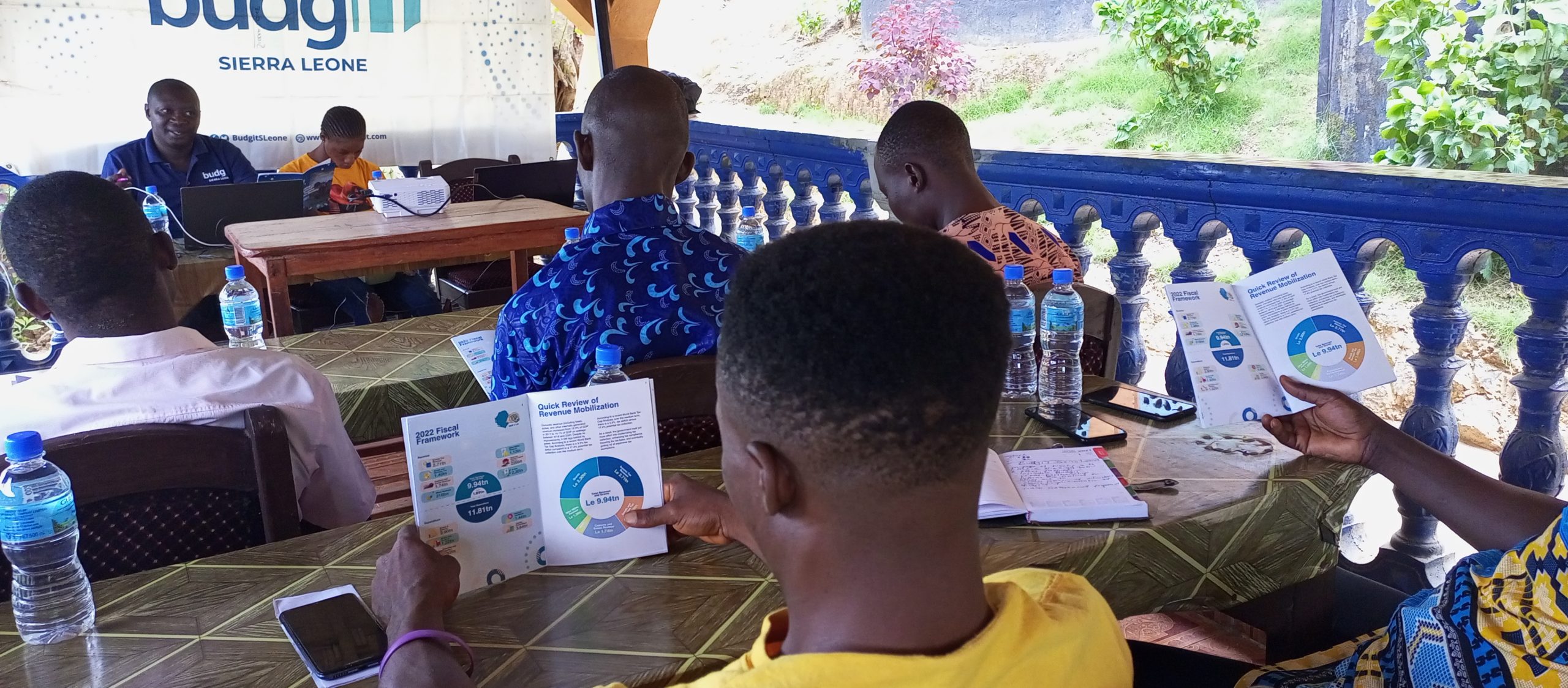
Town hall meeting with citizens to discuss the 2022 National Budget
We partnered with Lead Francophone Africa (LEAD) in Senegal to enhance fiscal transparency and accountability. Despite limited resources, we developed a brief analysis of the reports placed on the country’s websites for easy access by the public, including citizens, civil society organizations, and the private sector. The infographics are also shared on social media to increase awareness about the budget in our focus countries.
Our Offline Engagement Strategy
Aware of the lack of technology in rural areas, a critical part of our work involves community engagement meetings where we meet with citizens to share information about the budgetary provisions and encourage them to participate in the budget-making process and its implementation to foster economic development. In 2022, BudgIT Ghana visited six communities and held town hall meetings in Obuasi, Takoradi, Cape Coast, Ada Foah, Somanya, and Tarkwa. BudgIT Liberia, with support from the National Endowment for Democracy, printed 250 copies of the budget document, which were distributed in the budget sensitization meetings held in five communities: Montserrado, Grand Cape Mount, Grand Bassa, Margibi, and Bong Counties. The BudgIT Sierra Leone team held town hall meetings with citizens in Freetown, Bo, and Kabala districts, explaining the government’s priorities for 2022 in local dialects.
Promoting Health Sector Accountability
Expanding on our existing efforts to drive transparency and accountability in using COVID-19 intervention funds, our country offices in Ghana, Liberia, and Sierra Leone worked with numerous individuals and organizations, including government officials, regarding the disbursement and distribution of the COVID-19 funds and vaccine. BudgIT country offices held town hall meetings and radio discussions that provided a comprehensive overview of the situation on the ground and the strategies used by the public and the government to combat the pandemic. Through our engagement with health workers and other stakeholders, we uncovered critical issues in the sector and offered recommendations to mitigate them. We collaborated with the Open Government Partnership (OGP) to develop a health sector accountability report and vaccine equity in Ghana, Liberia, and Sierra Leone. These reports were shared with the governments to enhance their respective countries’ health sectors and effectively prepare for health emergencies.
Institutional Support
Our pan-African work has revealed that the government may not always have the capacity to produce transparent budgets; hence, we built a website for the Liberia Budget Office to enhance their ability to improve budget transparency in Liberia. We also partnered with the local Open Government Partnership to develop a Health Sector Accountability plan. At the 2022 OGP Conference for Africa and the Middle East in Marrakech, Morocco, BudgIT Ghana established a relationship with the Open Government Partnership Secretariat. The team collaborates closely with the secretariat to promote accountability in the health sector during the co-creation phase in June 2023 and the OGP Commitment for Ghana in December 2023. BudgIT Sierra Leone collaborates with the Ministry of Justice and Development, the Anti-Corruption Commission (ACC), and Justice Sector Coordinating Office Members to encourage public participation in governance.
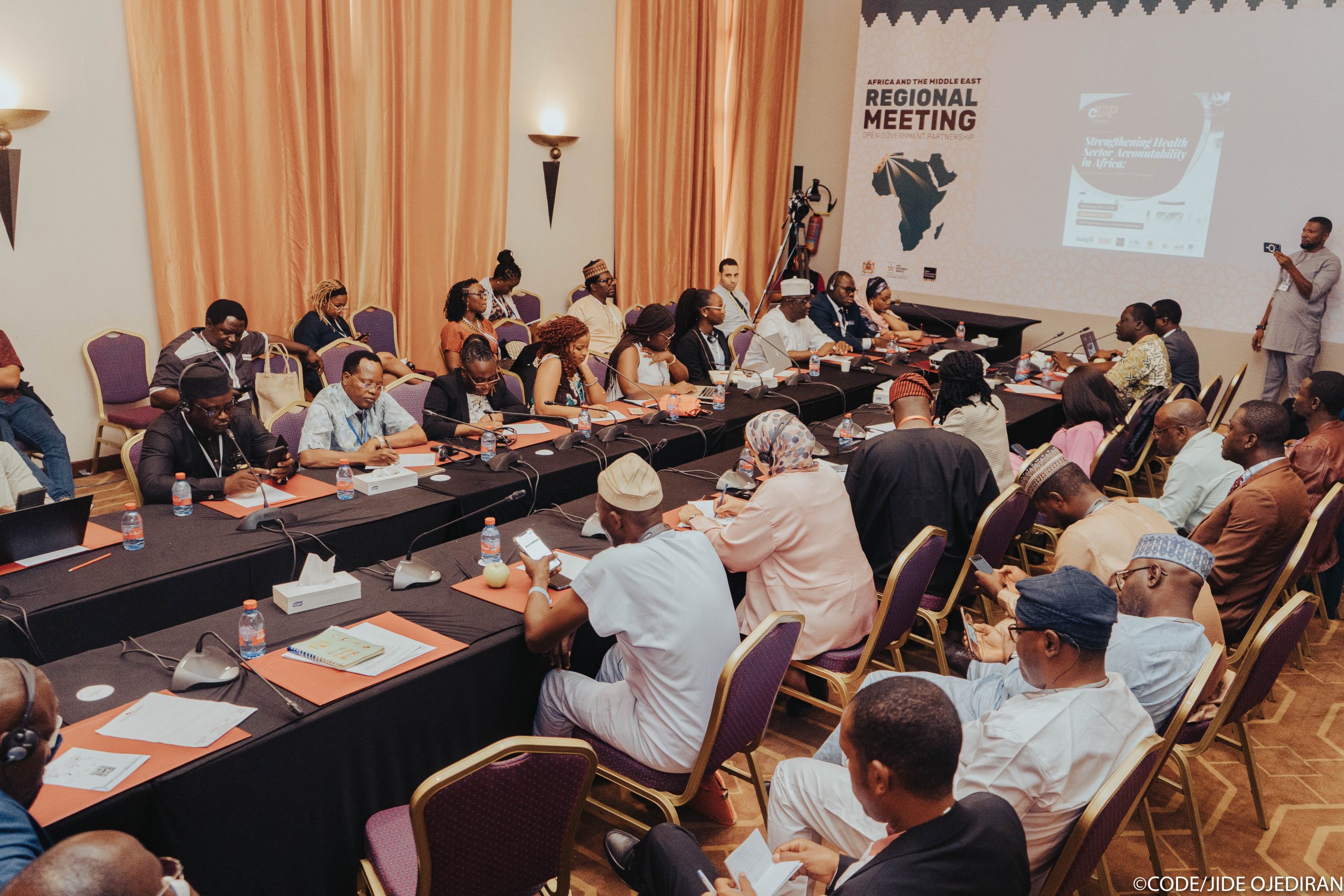
BudgIT Team presenting on health sector accountability during Open Government Partnership Regional Meeting in Marrakech-Morocco
What we are learning
- Consistent Engagement to Tackle Wave of Mistrust
From our varying experiences by country, we observe changes in citizens’ knowledge, attitudes, and behavior, with increased interactions and call-ins to our radio programs and responses from community leaders. Despite limited public finance knowledge, people are interested in governance. In Ghana, we observed an increased lack of trust in the government as inflation drastically increased the cost of goods and services. In Liberia, we see an indirect effect of our transparency initiatives, with youths demanding accountability and calling for credible elections in the upcoming election cycles. In Sierra Leone, people are beginning to get involved in our work, asking how they can demonstrate their civic responsibility. While we are excited about these behavioral changes, collaborating with the government can be challenging.
- Institutional Capacity Varies Across Countries
Some governments lack the capacity to open up their budgets, and others need more political will to do so, leaving vague and unclear budget provisions that are not trackable or easy to monitor. Overall, governments must prioritize capacity building to develop citizen-friendly budgets and work with civil society organizations to promote transparency and accountability.
- Inclusive Engagement matters
For democracy to be effective, all aspects of society must participate. While discussions about resource mobilization, budgeting, and service delivery from the perspective of “empowered” citizens have yielded excellent results, we will continue to engage with the media, civil society, the private sector, and the government on the importance of transparency and accountability in the use of public resources.
2023 Mandate
To increase transparency and accountability and foster deeper stakeholder engagement, BudgIT will creatively expand its initiatives this year. Part of this will involve empowering citizens to embrace participatory governance to monitor projects and have a say in how public funds are spent.
We will engage the media as the public’s watchdog and seek mutually beneficial collaborations with the government to foster good governance in our focus countries.
Abiola Afolabi is the Head of International Growth, and she writes from Chicago, USA.
